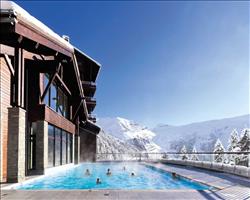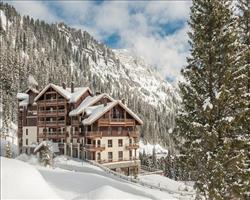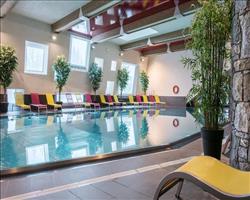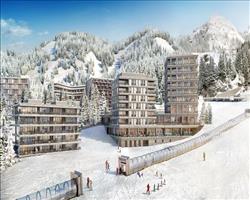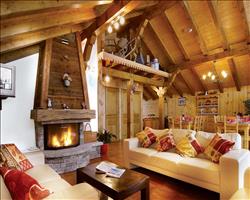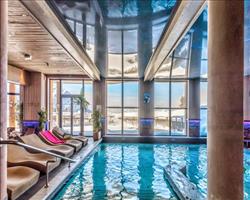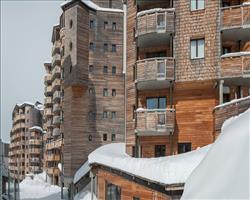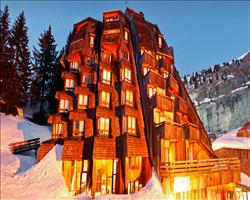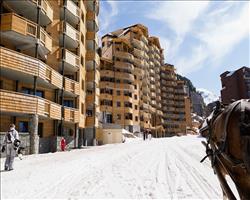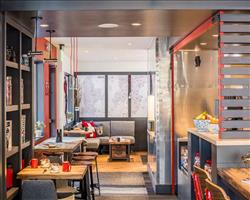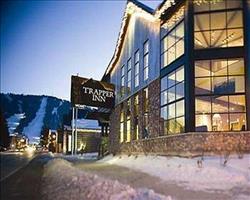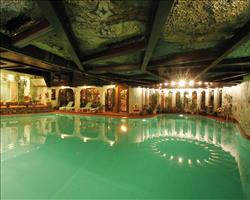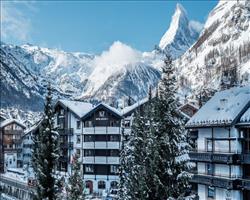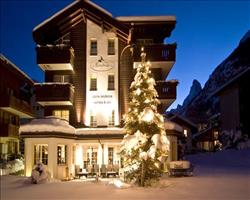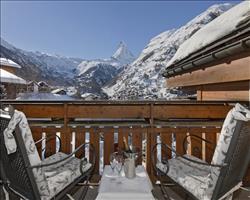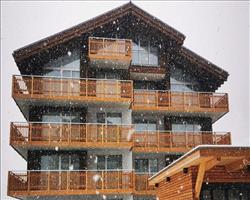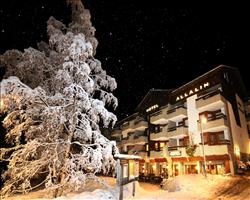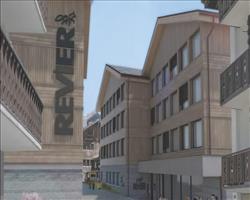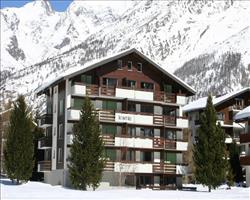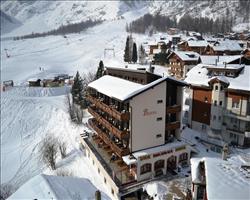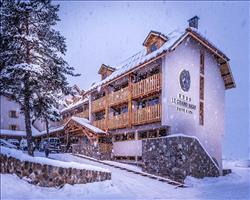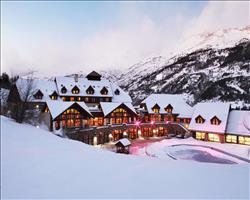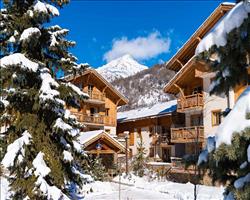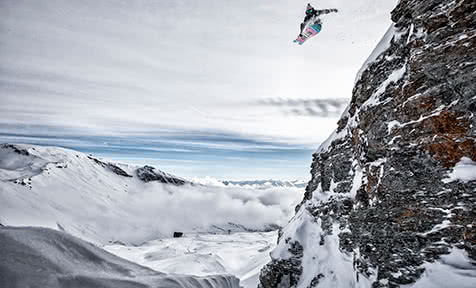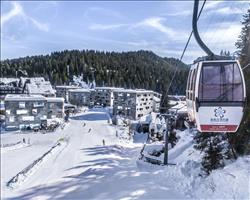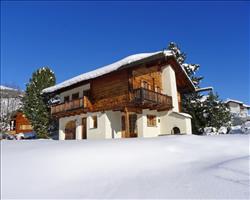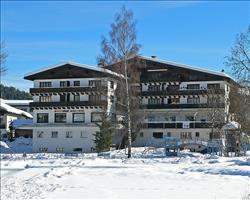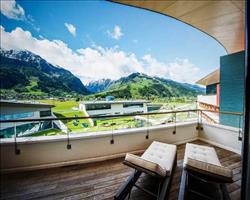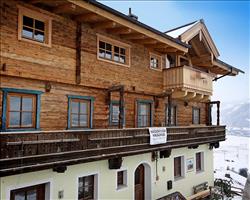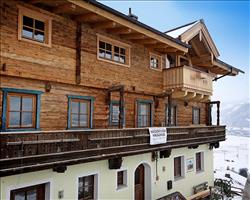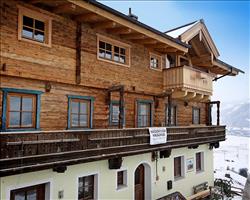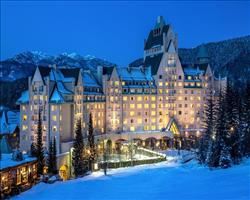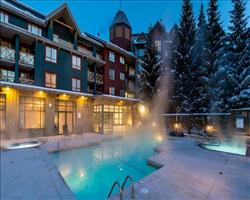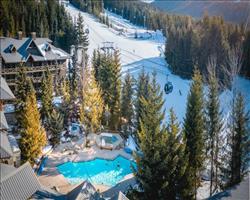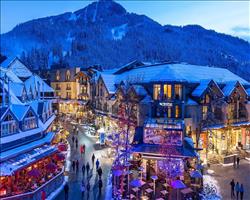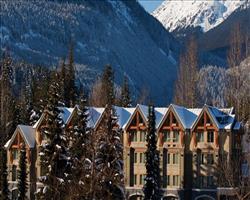Top 10 ski resorts for eco-friendly skiing
If you opt for environmentally friendly access to the slopes by driving to Flaine from home, a) this is one of the closest resorts to Calais and b) if you’re going SUPER eco and driving to the slopes by electric car, you’ll find recharge points in Flaine Forum. Once you’ve parked up, the resort is built bang on the mountainside, SO close to the slopes that you won’t need wheels to get around – in fact, the whole resort’s completely traffic free which makes the air clear as can be. But that’s just the beginning when it comes to what makes this place so gloriously green (in eco terms of course – weather wise this place gets a whole lot of snow). The surrounding Grand Massif ski area was the first ski area ever to receive Green Globe certification. Everything runs on renewable energy. There’s even an Environmental Observatory that monitors local biodiversity, and once the ski season’s over they crack on with replanting to support local species.
Cars have never been allowed in Avoriaz, which keeps carbon emissions low and the air gorgeously clean. Everything seems to be done with efficiency in mind – from long life lighting to the way rooves are built to retain snow for insulation. The whole resort runs on biofuel, thanks to a dual energy wood heating system backed up by electric. Recycling bins are dotted all over the resort and ski area so you can deal with rubbish responsibly, and snowmobiles are electric powered. There’s even an eco snowpark, the STASH, built from fallen trees.
This is one of the most sustainable resorts on the planet according to Green Destinations – who only allowed one other American town into their latest ‘Top 100’. It holds the Golden Eagle Award too, and we’ll wager the accolades will continue to grow as the carbon emissions plummet. You’ll struggle to find a building without energy efficient lighting or a thorough recycling program and the whole place is committed to using renewable energy. New buildings are setting sky high standards in sustainability, like the Hotel Terra (one of the world’s best eco ski hotels) with its recycled structure, organic mattresses and campaign against plastic bottles.
With the Matterhorn looming over you every day, it’s hard not to muster some serious respect for Mother Nature. Green living’s no new thing here - Zermatt Bergbahnen AG starting fitting solar panels here at the turn of the millennium. The Matterhorn Glacier Paradise restaurant was the first building they used, then the Matterhorn Express station ten years later. In 2018, the 3S valley station joined the party to save an extra 23.4 tonnes of carbon dioxide each year and it looks like the 3S mountain station will be next. Sulphur-free ‘eco speed’ diesel’s used for snow groomers and other vehicles, and when the lift system needs new cables, the old ones are sent to Myanmar and recycled to make bridges for remote communities. Flora and fauna isn’t forgotten, with renaturation projects on land that’s been damaged plus 6 protected forests and 10 wildlife sanctuaries to protect local species. That’s before we get to the village itself, which is deliciously car free – just whizzy electric taxis and buses and good old-fashioned horse drawn sleighs – as well as reachable completely by train for a really low carbon trip.
Car free since 1951 and fast approaching carbon-free status too, this ‘Energy Town’ is totally powered – village, ski lifts and all - by renewable hydroelectric energy. Electric buses and taxis take care of the transport side of things, though a lot of the resort’s accessible à pied. Cleaning the air even further, 250 wood-fired furnaces here have been fitted with particle filters in a campaign to make this the first ‘dust-free’ community in the Alps.
2018 saw Green Globe holder Serre Chev activate a masterplan to run entirely on renewable resources by 2021. It’s spiffingly set up to achieve its goal, with solar panels powered by the brilliant valley sunshine, wind turbines fuelled by the gusty mountain passes and hydropower from the water that goes into snowmaking. There are also plans to dematerialise ski passes which will save a whole lot of plastic.
Laax is FAR from lax when it comes to looking after the environment. This region set up the Greenstyle Foundation with the aim to be the first ever self-sufficient ski resort and the progress they’ve made’s more than admirable. All energy provided is renewable - sourced from photovoltaics (including solar panels on 5 ski lifts) and pellet heating systems. Any waste heat from ski lifts goes into warming buildings. Recycling’s huge here, from the bins on and off the mountain to creative upcycling - like the way event banners get made into rucksacks (you can bag one in Das Original). Water refill stations are plentiful and reusable coffee cups heavily encouraged. Lot of restaurants have switched to to using local produce – La Stalla exclusively so (try their homemade raclette) while Café NoName displays the carbon footprint of different dishes. Want to support the Greenstyle Foundation’s efforts? Treat yourself to a tipple from the Travelling Bar (which nicely plonks itself in the most scenic spot of the day) - a percentage of their profits goes towards the efforts.
When it comes to Kaprun’s Kitzsteinhorn glacier, ALL ski lifts run on renewable energy and any waste energy cleverly goes towards heating some of the surrounding buildings. Then there’s the snowmaking - pumps used to blast out the white stuff in the winter become turbines in the summer months, producing the power needed for next season’s snowmaking. Not stopping there, solar panels are being fitted onto existing buildings, while new architecture’s planned with efficiency in mind. Projects are also working on recultivating and revegetating the areas between the pistes.
Serial winner of ‘Canada’s Greenest Employer Award’, Whistler have a whole Mountain Planning and Environmental Resource team who work to keep environmental impact minimal. They’ve done a jolly good job thus far – the Fitzsimmons River Hydro Project installed a system under the PEAK 2 PEAK gondola that produces as much energy as Whistler uses. Energy usage is closely monitored, hybrid heating systems have been installed and thousands of lights switched to more efficient alternatives. Everything from cooking grease to broken ski poles gets recycled. They even practice sustainable ski trail design to look after local flora and fauna. Future goals include completely eradicating waste and carbon emissions - as Whistler does with all aspects of resort life, we’ve no doubt it’ll smash those targets and then some.
Nigh on perfect ski area - tick. Worldwide fame - tick. Incredible efforts to be eco-friendly? Tickety tick! All-star Aspen set off on its mission to eradicate emissions in 1997, before most resorts even knew what a carbon footprint was. 2015 saw it become the 3rd city in the states to be totally powered by renewable energy. The US Green Building Council made the mountaintop Sundeck Restaurant one of the first LEED (that’s Leadership in Energy and Environmental Design) certified buildings in the world, and now the Clubhouse at the Snowmass Club and Sams Smokehouse hold the same certification. There’s also the small matter of the resort having won the Golden Eagle Award for Overall Environmental Excellence a socking Excellence SEVEN TIMES OVER.
Arosa, Switzerland
If you ask us, you can only trump a ski resort with a spa and ski resort, and you can only trump that with an eco spa & ski resort. Precisely that, Arosa’s been crowned an ‘Alpine Pearl’ resort as a result of its fight to provide sustainable tourism. You can travel here by train to keep your carbon footprint minimal, then once in resort, horse-drawn sleighs and free buses will whisk you from A to B. Or - opt to drive in an electric vehicle and you’ll find numerous charging stations to keep you fuelled up in resort. This resort has some seriously nifty ski lifts, which regulate their speed according to demand to save energy, and channel waste energy to warm buildings. The Motta and Urdenfürggli chairs are powered by solar energy and before long, the whole place plans to be running on solar and hydropower.
Ruka, Finland
Ruka ski resort became carbon neutral in 2018, which happened to be a whole 2 years ahead of its intended date, 2020. The same year saw it host the World Bioeconomy Forum, where the bigs of the business came together to plan a sustainable and economical future for this neck of the woods (which, homeland of Father Christmas and all, is certainly somewhere worth protecting!). The resort runs on hydroelectric and wind power, with buildings heated by biofuel. You’ll find recycling points all around the place, while restaurants and hotels are upping their eco game every time we check.
Tignes, France
Tignes is encouraging EV driving by placing chargers in its car parks, so if you’re taking your electric-powered car to the slopes, you’re all set. No wheels? No fear – there’s a free shuttle service on hand to ferry you around if you need it, though most accommodation’s right by the slopes anyway. The snow groomers that create the cruisy corduroy here are powered by biofuel and snowmaking’s chemical-free, with water fed back into the lake for minimal wastage. Piste maps are made from recycled paper, or you can download one to your phone if you want to really cut down on paper usage. Slowly but surely, ski lifts and buildings are becoming more efficient which should see the overall emissions steadily drop as time goes by.
Park City, USA
PC’s widely known as the biggest eco-warrior of all North American resorts: this was Utah’s first town to ban plastic bags and the mountain resort been installing solar panels and wind turbines left, right and centre in a bid to run completely on renewable energy by 2032. Until then, all other power used is offset with wind credits. There’s been huge effort to support local farmers and minimise food miles and you’ll struggle to find a building not kitted out with energy saving lightbulbs and the like.
Chamonix, France
As the host of the Sustainable Summits Conference, it would be crazy if Cham wasn’t setting serious standards for green skiing. This place has a commendable climate plan – to slash energy use and emissions and increase renewable energy use. Transfer time from Geneva is short which keeps your carbon footprint low, as does the fact that this is one of the nearest ski resorts to drive to from home. It has numerous car parks with EV charging if you’re taking your Tesla/Leaf or the like.
Davos, Switzerland
As the host of the World Economic Forum, Davos - one of Switzerland’s Energy Cities - leads by example when it comes to sustainable operations. Being totally energy self-sufficient is the aim, and steps in that direction come in all shapes and sizes. The recycling program here puts the rest of the world to shame (this was Switzerland’s first city to recycle cigarette waste which has long been an issue in ski resorts). And more and more energy is sourced from renewable providers.
St Moritz, Switzerland
The land surrounding St M is a hive of hydroelectric activity, providing a socking 20% of the country’s hydropower. As you’d expect in a place that gets 300+ days of sun each year, solar panels are cropping up every which way – including on the Corviglia railway and Piz Nair Cable Car stations. Snowcats run on diesel-electric, groomers on biofuel and snowmaking machines organic compressor oil.
Val d’Isere, France
We’ve all heard about Val’s fearsome terrain and wild après ski, but did you know the resort holds the Green Globe International Standard for Sustainable Tourism? It plants 5 trees for every 1 tree it cuts down and has committed to environmentally responsible snowmaking and minimising the number of pylons that jut out of the mountainside.
Geilo, Norway
Geilo made it onto the list of the world’s Top 100 Sustainable Destinations and it’s easy to see why. The tourist office give special certification to environmentally friendly activities and accommodations (look out for the green grass symbol), helping visitors to enjoy a sustainable stay in resort. Everything’s carefully thought through, from how they handle waste to how much and what type of energy is used. Those keen to keep their carbon footprint really tiny can travel here by train from Bergen or Oslo.
Vail, USA
Vail has massive goals in the eco department – with no emissions and no landfill waste taking the top spots. The resort has been steadily reducing electricity and gas usage for over a decade, and invests in carbon offset programs, environmentally friendly snowmaking, long-life lighting and solar panels (which have been installed at the top and bottom of the Eagle Bahn gondola). Over 40% of waste is already being saved from landfill thanks to a recycling and composting program – a full time team focus on this all winter long. Much attention’s also paid to local forests and mountain environments, including minimal impact, replanting and animal welfare.
Best Eco Ski Resorts
| Resort | Country | Eco/green practices |
|---|---|---|
| Flaine | France | Runs on renewable energy, car-free resort, Environmental Observatory, recharging program |
| Avoriaz | France | Runs on renewable energy, car-free resort, great recycling program, eco snowpark |
| Jackson Hole | USA | Top 100 Sustainable Destination & Golden Eagle Award holder, sustainable buildings, committed to using renewable energy |
| Zermatt | Switzerland | Numerous photovoltaic installations, eco diesel for snow machines, great recycling, renaturation & forest protection, car-free village |
| Saas Fee | Switzerland | Energy town, car free, runs on hydroelectric energy, electric buses, particle filters on furnaces for ‘dust free’ environment |
| Serre Chevalier | France | Green Globe resort, plans to run 100% on renewable energy by 2021 & dematerialise lift passes |
| Laax | Switzerland | Set up the Greenstyle Foundation, aims to be world’s 1st self-sufficient ski resort, runs on renewable energy, big on recycling & local produce |
| Kaprun | Austria | Kitzsteinhorn lifts run on renewable energy, eco snowmaking system |
| Whistler | Canada | Aims to be completely waste & emission free, extensive recycling program, in-resort hydroelectric system, several time winner of Canada’s Greenest Employer Award |
| Aspen | USA | Completely runs on renewable energy, photovoltaic installations, holds the Golden Eagle Award for Overall Environmental Excellence |
| Arosa | Switzerland | Easy train access, speed regulating & solar powered ski lifts, electric car charging, plans to run completely on green energy |
| Ruka | Finland | Carbon neutral ski resort, powred by hydroelectric and wind, great at recycling, hosts World Bioeconomy Forum |
| Tignes | France | EV charging, good public transport, eco-friendly snow grooming and making, buildings becoming more efficient |
| Park City | USA | Plans to run on green power by 2032, plastic bag ban, solar panel & wind turbine installations, supports local farmers |
| Chamonix | France | Big plans to reduce emissions, hosts Sustainable Summits Conference, good EV charging facilities, short transfer time |
| Davos | Switzerland | Aims to be energy self-sufficient and already uses renewable sources, terrific recycling program, building efficiency being improved |
| St Moritz | Switzerland | Hydropower produced nearby, solar panel installations, green fuel for snowcats, groomers and snowmaking |
| Val d’Isere | France | Green Globe International Standard, replanting program, working to improve efficiency of snowmaking & infrastructure |
| Geilo | Norway | Top 100 Sustainable Destinations, encourage eco activities, monitor waste & energy |
| Vail | USA | Aim for zero emissions & landfill waste, excellent recycling program, invest in carbon offsetting |
We update this list often but facilities can change, so if any specific feature is essential to your trip, make sure you ask us to confirm the details before you book your holiday.






